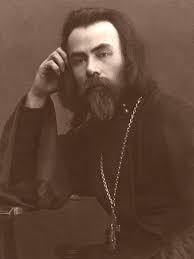First of all, I’m excited to say that my humble substack has now passed 1,000 subscribers. It isn’t much, comparatively, but it’s enough to warm the heart and provide some motivation for this washed-up academic trying to continue as much as possible his vocation of thinking and writing in whatever time is left after attempting to provide for his family and be a human being. (I am also acutely aware that I have most of my subscribers thanks to the good luck of having a friend with a much larger following recommending my blog. If by some chance you aren’t currently following Commonplace Philosophy, please do.)
Second, I am happy to announce that my latest academic paper “Is ‘orthodox panentheism’ unorthodox? A response to James Dominic Rooney” is now published online by Religious Studies and can be read here: https://doi.org/10.1017/S0034412524000349. For context, this a response to a paper by Fr. James Dominic Rooney, O.P., criticizing an earlier paper by myself. (If you are interested in any or all of the papers and cannot access them, feel free to email me for copies.)
Third, I am even more excited to announce that the book project I’ve been working on with my friend Pete Murray is now under contract with Lever Press, an open-access academic press working out of U. Michigan. The tentative title is A Radical Orthodoxy: Writings on Revolutionary Christianity by Fr. Valentin Sventsitskii, 1905-1919. It is focused on introducing and translating some really interesting and unduly neglected works on political theology by Sventstiskii.
Here is the basic project summary:
Valentin Sventsitskii (1881-1931) was a Russian Orthodox political and religious philosopher, revolutionary activist, journalist, novelist, playwright, and priest. He is also venerated as a saint and New Martyr by many in the Russian Orthodox Church abroad. Sventsitskii founded the first Orthodox political organization in Russia (The Christian Brotherhood of Struggle), and he was an influential voice in Russian revolutionary circles following the events of Bloody Sunday in 1905 and the October Revolution of 1917, when he supported the anti-Bolshevik forces of the Volunteer Army. Sventsitskii was imprisoned and died in internal exile under the Soviets for resisting the “Sergian” capitulation of the Orthodox Church to the Soviet government.
Sventsitskii was an enormously prolific author and lecturer who argued persuasively on doctrinal grounds against—and, indeed, for an inversion of—the traditional subjugation of the Orthodox Church to the state in Russia, and for the restructuring of the autocratic social and political order of Russia on communalist principles that he, like Aleksei Khomyakov, saw in Russian agrarian forms of self-organization. However, Sventsitskii also failed to fit neatly into the categories his contemporaries used to understand him. For example, he was decried (and lauded) as an anarchist, though he explicitly rejected anarchism and contrasted it with his views. He was also lauded (and decried) as a Christian socialist, though he explicitly rejected the very idea of “Christian socialism" as an absurdity like "dry water" or "wet fire." Ultimately, Sventsitskii's view was an apocalyptically Orthodox one, in which social reform properly has the religious end of fulfilling humanity's essential role in bringing about the Kingdom of Heaven, an idea he grounded in the work of Vladimir Solovyov. Explicitly anti-autocratic, anti-authoritarian, democratic, and egalitarian; harshly critical of the historical institution of the Russian Orthodox Church; fiercely committed to social justice, to care for the poor and disadvantaged, and to the end of capitalist relations of labor as Christian imperatives; relentlessly based in the Gospels and engaging every aspect of personal, social and political life− Sventsitskii’s sweeping Orthodox vision resists easy categorization even today.
For these reasons and others discussed in the essays introducing and analyzing his life and work in this volume, Sventsitskii remains virtually unknown outside Russia, despite the importance, rigor, and power of his philosophical, political, and religious views, and notwithstanding his close personal engagement with, and influence on, the work of such well-known Russian activists, thinkers, and writers of the time as Sergei Bulgakov, Nikolai Berdyaev, Pavel Florenskii, Andrei Bely, Aleksandr Elchaninov, Pyotr Struve, Dmitrii Merezhovskii, Dimitrii Filosofov, Vasilii Rozanov, Konstantin Aggeev, Evgenii Trubetskoi, and others. This volume remedies this serious lacuna with translations of a broad selection of Sventsitskii's most important works from the most socially active period of his life, all of which are appearing for the first time in English. The translations are accompanied by critical essays explaining and assessing Sventsitskii's significance in the history of Russian political and religious philosophy, as well as the relevance of his work to contemporary discussions of political theology and the proper relation between Church and State.
As I continue to work on this project, expect to see even continued discussion of Silver Age Russian philosophy!




Thanks for sharing your work. I wonder why this fundamental idea—panentheism—and God beyond an Aristotelian framework, for God as St Maximus argues in his first century on theology, God cannot fit into the frame of Aristotle—he is beyond origin, intermediate state (motion), and actuality while—through his self giving through his energies he is the state of actulization of all that comes into being. He is beyond being yet his ecstasy of himself as the logoi and energies allow for participation in God and eventual identification with God without collapsing man into God or God into man in essence or numerical identity. Essentials it’s the the only manner I think to preserve otherness and yet complete identity with. I think of it as a both / and logic.
Hi Jeremiah - congrats on all the good news! Fascinating premise on Orthodoxy and Panentheism. Look forward to taking a closer look at your paper.
Have you taken a look at Andrew Jackson's work on bridging evolutionary biology and St. Maximus' logoi? Link here - https://onlinelibrary.wiley.com/doi/10.1111/zygo.12885
It too posits an "incarnational panentheism" that I find compelling. Would be curious to get your thoughts when you have time to digest!